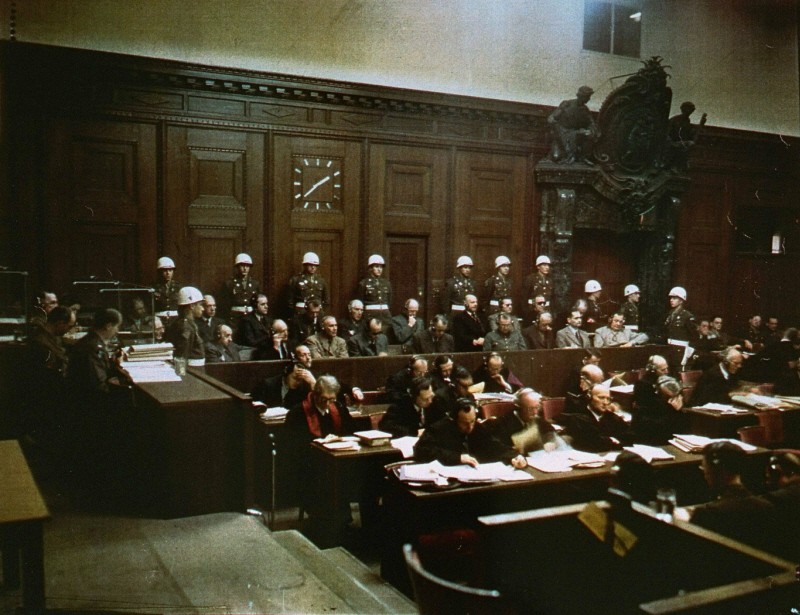
Wilhelm Frick
In the immediate aftermath of the Holocaust, the world was faced with a challenge—how to hold individually accountable those German leaders who were responsible for the commission of monstrous crimes against humanity and international peace. The International Military Tribunal (IMT) held in Nuremberg, Germany, attempted to face this immense challenge. On October 18, 1945, the chief prosecutors of the IMT brought charges against 24 leading German officials, among them Wilhelm Frick.
Wilhelm Frick (1877–1946) was Reich Minister of the Interior from 1933 to 1943 and Reich Protector for Bohemia and Moravia from 1943 to 1945. In the decisive first years of the Nazi dictatorship, Frick directed legislation that removed Jews from public life, abolished political parties, and sent political dissidents to concentration camps.
Frick was found guilty on counts two, three, and four (crimes against peace, war crimes, and crimes against humanity) and sentenced to death. He was executed on October 16, 1946.
Critical Thinking Questions
- Explore how challenges to ethical behavior and leadership played out in the context of the Holocaust. How do these challenges confront us today?
- How can knowledge of the events in Germany and Europe before the Nazis came to power help citizens today respond to threats of genocide and mass atrocity in the world?
- What pressures and motivations may have affected Frick's choices before and during the war?
- What safeguards or protections within a society may help limit or prevent mass atrocities and genocide?
- Beyond the verdicts, what impact can trials have?

